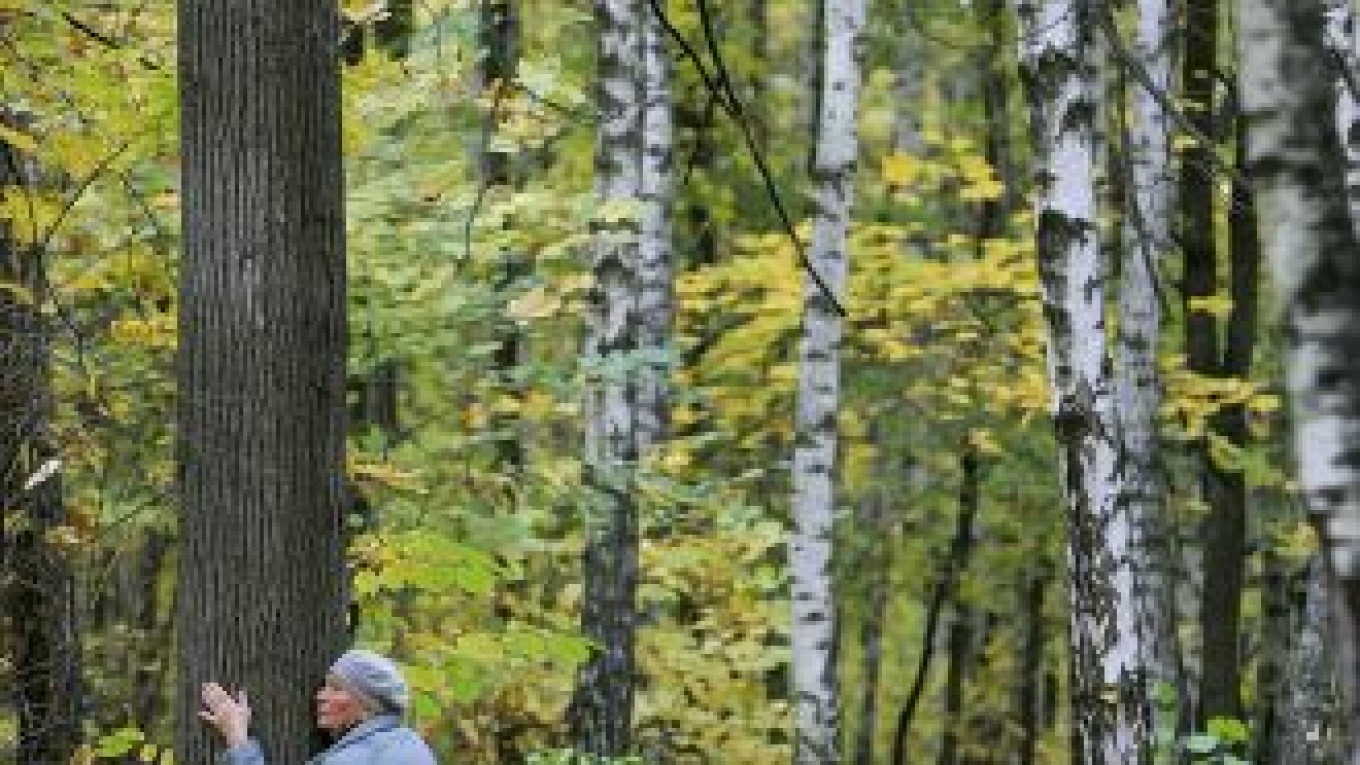The Siberian wildfires that killed eight people last week are spiraling out of control and could be more disastrous than the fires of 2010, environmentalists have said.
Blazes in the republics of Tyva and Sakha, and the Pribaikal, Krasnoyarsk and Amur regions already cover a wider area than those that blanketed Moscow in a choking smog two years ago, said Grigory Kuksin, the head of Greenpeace Russia's wildfire program.
"The number of deaths is still lower, so far, but in terms of the area destroyed it already exceeds 2010 and 2011," he said by telephone.
The republic of Tyva requested 100 more airborne firefighters from the federal government Wednesday. They will join more than 250 personnel already fighting the blazes in the Siberian republic, where authorities have declared a state of emergency in the wake of last week's deaths. The eight who died were parachutists working for the republic's Airborne Forest Service.
The Federal Forestry Agency estimates forest fires cost Russia between 20 billion and 100 billion rubles a year ($625 million to $3.13 billion), depending on the severity and the areas they strike, said Vladimir Dmitriev, a spokesman for the agency. The impact is worse in areas dependent on agriculture or forestry.
The Emergency Situations Ministry website said 144 fires were burning on a total area of 18,143.5 hectares Wednesday, overwhelmingly concentrated in Siberia and the Far East. The worst effected regions included Yakutia, with 1,729 hectares ablaze, Sakhalin with 1,314, and Krasnoyarsk, where over 7,000 hectares were reported to be burning.
But Greenpeace said its own monitoring via publicly available satellite photos showed that about two million hectares were burning in the Amur region alone.
Kuksin said the anomaly was likely to be because the ministry's figures are based solely on what local administrations report to them.
"The Amur region is probably the most seriously affected at the moment, but the administration will not even recognize they have a problem," he said.
"If you can't tackle it yourself, you have to ask for help from neighboring regions or the federal government without delay," he said.
A spokeswoman for the Emergency Situations Ministry declined to comment, referring all questions about forest fires to the Federal Forestry Agency.
Dmitriev maintained that the situation so far was not "catastrophic," and agreed that efforts were focused in the country's East.
"In 2010, Siberia was pretty calm, but in the European part of the country we had a two-month drought that caused catastrophe," Dmitriev said.
"This year, it is more or less the other way around. The European part of the country has had plenty of rain, but Siberia has been dry because of an anti-cyclone," he added.
The fires are often so remote that they can only be fought by specialist airborne firefighters who can deploy by parachute or helicopter to affected areas. The eight who died last week were from just such an airborne unit.
To make matters worse, the remoteness means a dearth of information. The investigations into last week's deaths are ongoing, but the evidence that has so far emerged suggests that unexpected winds fanned the flames and caused the blaze to move to the forest canopy above their heads — indicating that a lack of real-time information may have contributed to the firefighters' deaths, Kuksin said.
The developments come despite an overhaul of the fire fighting system after the fires that ravaged central Russia in 2010. Five billion rubles (about $150 million) were invested in equipment for fighting wildfires, and new specialist units were established in each region to respond to outbreaks in forests.
West of the Urals, Russia has seen fires in reed beds in the Astrakhan nature reserve on the Volga Delta. Some areas of the Krasnodar and Volgograd regions in the south have faced fires.
Later this month the U.S. Forest Service and National Fire Protection Association will host their Russian counterparts on a study tour of wildfire prevention and community and local solutions under the Bipartisan Presidential Commission established by former president Dmitry Medvedev and U.S. President Barack Obama in 2009.
City Hall has come up with a new approach to environmental monitoring: a tree census.
The inventory of the capital's trees, lawns and other green spaces will cost about 7 million rubles ($218,750), Izvestia reported.
The budget may turnout to be paltry, however: Estimates say there are about seven million trees in the capital, putting the cost of the inventory at one ruble per tree.
The city department for use of Natural Resources and Environmental Protection hopes the census results will help it monitor areas of environmental degradation around Moscow.
A Message from The Moscow Times:
Dear readers,
We are facing unprecedented challenges. Russia's Prosecutor General's Office has designated The Moscow Times as an "undesirable" organization, criminalizing our work and putting our staff at risk of prosecution. This follows our earlier unjust labeling as a "foreign agent."
These actions are direct attempts to silence independent journalism in Russia. The authorities claim our work "discredits the decisions of the Russian leadership." We see things differently: we strive to provide accurate, unbiased reporting on Russia.
We, the journalists of The Moscow Times, refuse to be silenced. But to continue our work, we need your help.
Your support, no matter how small, makes a world of difference. If you can, please support us monthly starting from just $2. It's quick to set up, and every contribution makes a significant impact.
By supporting The Moscow Times, you're defending open, independent journalism in the face of repression. Thank you for standing with us.
Remind me later.






